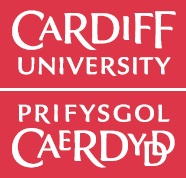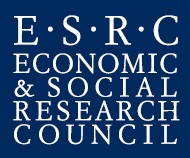| The project “Digital Citizenship and Surveillance Society” aimed to explore the nature, opportunities and challenges of digital citizenship in light of the governmental surveillance measures revealed by whistle-blower Edward Snowden. The leaks initially published by The Guardian and the Washington Post provide unprecedented insights into the workings of digital surveillance programmes and thus a unique historical opportunity for this research. They have prompted significant debates around such issues as the nature of civil rights in a context of security; the accountability of government agencies and corporate intermediaries; the transparency, use and configuration of technical infrastructures; the breadth and extent of state interference in civil life; and the role, responsibilities and limitations of journalists reporting on state activities. This project aims to both capture and actively contribute to these transformations by analysing digital citizenship along four central themes that all shape and manifest contemporary structures of governance in ‘surveillance society’: policy, technology, civil society, and news media. The project addressed the following questions:
1) Policy a. What is the current policy and regulatory framework of digital surveillance in and by the UK as highlighted by the Snowden leaks? 2) Technology a. What are the technical infrastructures that are targeted, used, and exploited for digital surveillance as indicated by the Snowden leaks and what role have technical standards played in enabling or hindering surveillance? 3) Civil society a. What is the nature of public knowledge with regards to digital surveillance and how are everyday digital communication practices changing? 4) News media a. How have the British news media represented the Snowden leaks and digital surveillance more broadly? Project Team: Dr Arne Hintz (Cardiff University) – Principal Investigator Advisory Board: Prof Chris Marsden (Sussex University, UK), Prof Geert Lovink (Institute of Network Cultures, The Netherlands), Prof Gabriella Coleman (McGill University, Canada), Dr Seda Gürses (New York University, USA), Dr Oliver Leistert (University of Paderborn, Germany), Gus Hosein (Privacy International), Javier Ruiz Diaz (Open Rights Group). |
 Cardiff University is one of Britain’s leading teaching and research universities and is a member of the Russell Group of the UK’s most research intensive universities. It was ranked 5th in the UK in the 2014 REF. Founded by Royal Charter in 1883, today the University’s breath of expertise encompasses: the College of Arts, Humanities and Social sciences; the College of Biomedical and Life Sciences; and the College of Physical Sciences and Engineering, along with a longstanding commitment to lifelong learning. Cardiff University is one of Britain’s leading teaching and research universities and is a member of the Russell Group of the UK’s most research intensive universities. It was ranked 5th in the UK in the 2014 REF. Founded by Royal Charter in 1883, today the University’s breath of expertise encompasses: the College of Arts, Humanities and Social sciences; the College of Biomedical and Life Sciences; and the College of Physical Sciences and Engineering, along with a longstanding commitment to lifelong learning.
Funding for this project was provided by the Economic and |

 Social Research Council (ESRC). The ESRC is the UK’s largest organisation for funding research on economic and social issues, and it supports independent, high quality research which has an impact on business, the public sector and third sector. It has funded this research project under its ‘Global Uncertainties’ programme and the specific grant programme on ‘Ethics and Rights in a Security Context’.
Social Research Council (ESRC). The ESRC is the UK’s largest organisation for funding research on economic and social issues, and it supports independent, high quality research which has an impact on business, the public sector and third sector. It has funded this research project under its ‘Global Uncertainties’ programme and the specific grant programme on ‘Ethics and Rights in a Security Context’.